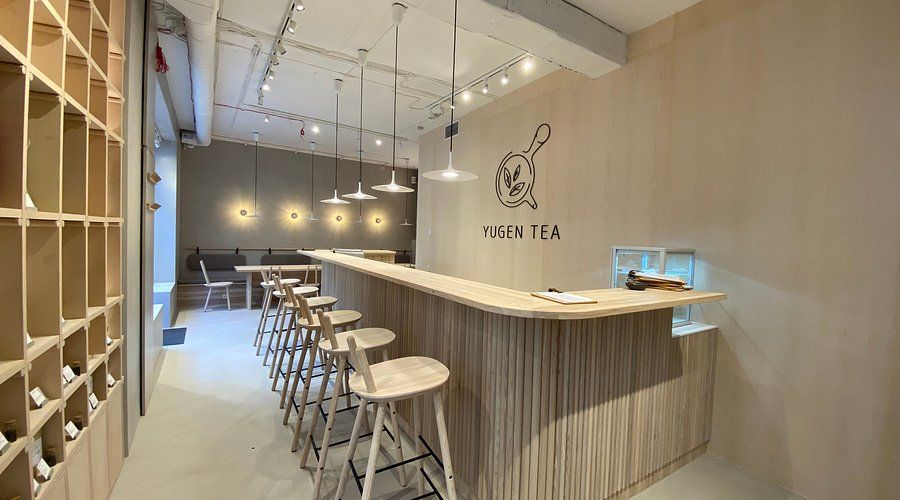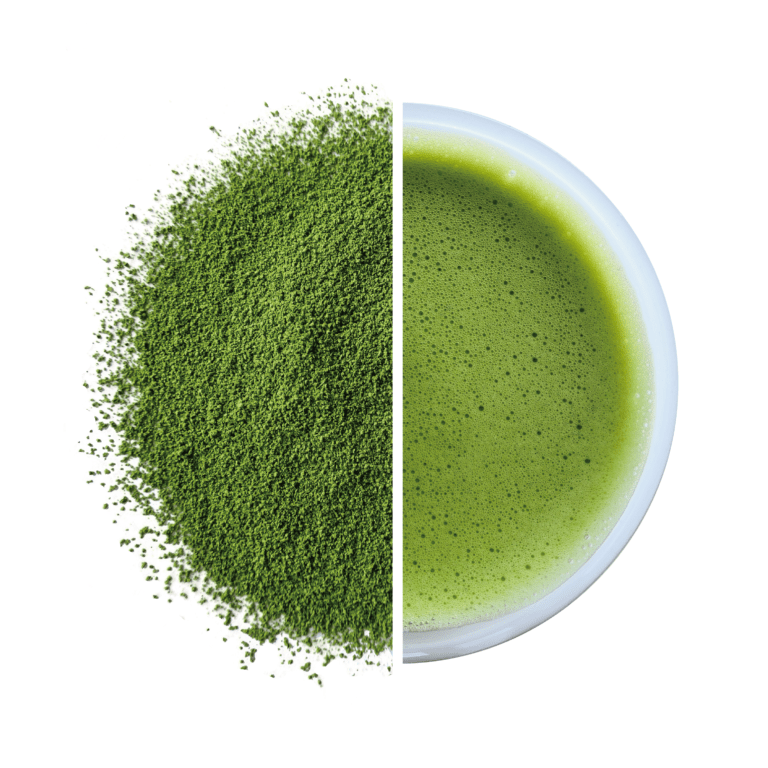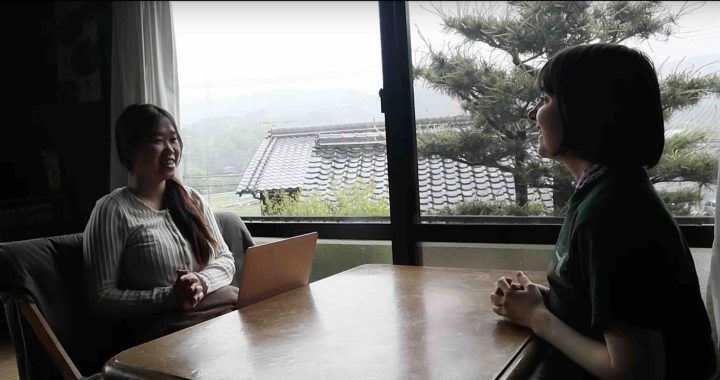

Being here at Obubu, you meet all sorts of talented, inspirational people from around the world. Whether they be guests or interns, you learn and can grow so much from each other. I used to be seen as the annoying kid who always asked too many questions. However, growing up, I started seeing my innate curiosity to be a proud attribute of who I am. Now I’m in Wazuka—a rural village in Kyoto Prefecture, surrounded by mountains, streams, and endless tea fields—and I often ask myself: when will I ever meet people like this again? You never know. So I ask. This blog is a result of me wanting to learn from my incredible peers.
As someone who dreams of starting my own tea business someday, I wanted to interview a few former Obubu interns who are a step ahead on that path. Introducing the people that I am inspired by: Marie (intern #129) and Giedre (intern #120). Marie is a gifted designer who designed Obubu’s matcha tins and natural sencha collection. I loved how she shared the intricate details of her design process during our interview. Giedre, on the other hand, owns a tea house where she explores unique flavor pairings—like Japanese tea with chocolate or cheese. Her approach to tea is a creative and beautiful experience.
Here is my interview with Marie Romano, our talented designer!

Here is my interview with Giedre, owner of Yugen Tea in Lithuania:
- What inspired you to start your own tea business?
- My huge love for tea, I have been a tea lover since I was a teenager. I really liked tea and started to explore tea and learn more about it. It happened to be Japanese tea that I liked most, even though I like to try different types. I studied Asian studies and Japanese language. Japan was my main focus. I was an international student in Kansai and had a chance to learn tea ceremony at tea ceremony classes and just deepen into Japanese tea. So maybe after eight years of exploring tea, I felt that it’s time to share my passion with others. I think it was 2016 when I did ceremony classes, tried tea, found Obubu, and attended a few events here. When I lived in Australia, I did some tea master courses, worked in a tea shop, and on the way back to Lithuania, I already had a plan and a dream to open my tea house.
- Did the internship affect your dream of opening a business or by then did you already have the business?
- No, I haven’t had one yet. But the internship gave me some skills, knowledge, and a deeper understanding of how tea grows and how it’s processed. So that definitely gave me some knowledge and trust in myself that I can really do it. In Lithuania, tea is not a really popular thing, and it’s a really niche business I took a risk on. As an intern, I tried to explore new different flavors and have a curiosity about tea everyday. And that curiosity helped me to be where I am right now.
- What do you think is the most favorite combination that you have been doing so far?
- So, in general, about the Yugen tea, the tea brand I have, when I came to Japan, as an intern I met many wonderful tea farmers along with Akky-san, and all of them have their own perspective towards tea that was really inspiring for me. In the beginning, I was planning to have just a tea house and not sell tea, but when I met all those farmers, they had unique favorites and different approaches to how tea is cared for. And I felt that I want to be the bridge between the farmers and customers to show how to understand tea. So now, I have a shop and also a tea house and the main activity I do is tea tastings. It is more educational by trying different flavors and trying to make your own tea. I have three types of tastings and sometimes I have a partnership with others like a tea and chocolate tasting or cheese and tea tasting. So when those two combine together, we can get a really nice flavor. I also pair European, French type desserts with Japanese tea. One of my favorite most creative desserts is Genmaicha panna cotta with apricot, with fresh apricot and buckwheat flour as a crust, and we pair it with Sencha, prepared in the low temperature like 60 degrees. So, pairing tea and food is a topic I like, and also sometimes I consult some restaurants when they need the tea menus, so I think this is like a modern point of view, the same concept that tea can be paired the same as a good wine. The teahouse is called Yugen and Yugen is like those unseen beautiful moments such as enjoying the ceramics or the aroma of the wet tea leaves. And those little details would give me pleasure of being in a moment, slowly enjoying the taste. I feel that people really appreciate learning this way, having a tea moment after stopping by in a busy city.
- When you experienced interning here at Obubu, did you make connections with the farmers, and how did you build relationships with them?
- So I do work with a few farmers from Wazuka, who I met through others. It’s probably when you’re around the tea fields and tea people, it’s like somehow you connect. But for me, it’s important to know people and build a relationship. I try to come back to Japan every year and visit those tea farmers, help to harvest tea a bit or just have some tea with them. It’s a really busy season when it’s harvest time, not everyone has time for me, but they try to schedule me in.
- So, what do you look for in a supplier, especially when you’re working with Japanese farms?
- I’ve been working with 7 tea farmers for the last 3-4 years. When I was starting the collection, every farmer grows Sencha. You can’t have like 20 senchas in your collection. So you choose a taste profile you like. In Japan, over the years, sometimes one cultivar becomes really popular. For example, there is one cultivar that has a natural sakura taste and it’s trending in specialized Japanese tea houses. So just like seeing what’s new happening and what you can put in a collection, but of course, the story behind the farmer, the passion the person feels, and quality is also important. You can also find a really good tea, but the farmer may not be able to ship it to Europe as that doesn’t fit requirements, so there are many logistical parts as well.
- What platforms helped you build your business? Or helped it grow the most? What helped it become what it is today?
- Of course, social media helped, but I felt like word of mouth, like the old fashioned way was most effective. People feel that nowadays there are less people who do things really from the heart, and I just put all my heart into what I do and build a community around it. There are trends like, at the moment matcha is really booming and it’s an outside factor that helps to build up sales. But in the beginning, there was so much education because people didn’t know much about tea. Every day I educate my team and share information and learn more about tea.
- Do you think your connection with Obubu or your story behind the farm helped with customer trust or interest?
- It helped in a way that I learned so much from here. Obubu was one of my valuable life experiences.
- What were some of the biggest challenges you faced in starting your business and the ups and downs?
- Any business is a circle or waves. If you face a challenge, the first time you face it, you learn it and next time you can predict what’s going to happen. The beginning was not that easy because there was COVID, so it was really scary to open a shop when you don’t know what’s gonna happen next. I applied to the government’s support project, which helped me a little bit financially. When you open a business, there’s so many factors you need to know, probably the most difficult part was dealing with the construction workers because the location was really new and it ended up taking an extra nine months to be open. Basically small business owners have to know everything from finance, management, comply with regulations in the country, and go through all the import customs procedures. That was so frustrating and in the beginning I said, if I didn’t like tea that much, I wouldn’t do it. Importing, exporting, was hard because the government regulations are really high in Lithuania. What helped me the most was the people’s support. People already knew that the tea houses were about to be open because I started with a shop while we were doing reconstruction work, and people really loved the place and they still really love it. Sometimes it feels that you’re actually doing everything for them. Because I want them to have those little moments in their daily life. Like this one lady said, “Oh, I am moving out a bit out of the city and like, I’m so sad ’cause now I can’t come that often,” and that touched my heart that someone really cares that this place exists. After that I feel I have so much energy and this energy circulates between people. That’s the thing about tea.
- So, were there any mistakes you made early on that became learning moments for you?
- Even though I feel like I’m a really good manager, like, I have good management skills, time planning, and I can do things with the best plans, the best schedules, you never know what’s gonna happen. Sometimes you don’t know what to expect and you have to be ready for anything, make decisions based on your values, and the human factor such as my team, is really important.
- What’s one thing you wish you knew before starting your business?
- When I was quite young, I thought, “Okay, you’re gonna have a tea house when I am old because it’s such a relaxing thing. First I’m gonna travel the world!” When I started, I knew that, of course, it’s a hard job, it’s a hard thing to do. Everything is a learning process. Everything I got along the way gave me an experience, made me stronger and the way I am.
- What are your future plans, and is Obubu part of that journey? Are there any exciting projects or collaborations you’re currently working on?
- Yeah! I hope it will. We have I think five of Akky-san’s tea in my collection. The plan is to make good tea and serve nice tea to the clients. One day I feel that I want to explore different forms of tea. I know for sure that my life will be connected with tea and it probably will be the main activity for the rest of my life. I’ve been talking with a few musicians for the past few years. We wanna pair tea with classical music. I’ve already done the tea and cheese pairing that I was looking forward to for so long, but sometimes in your daily tasks to maintain the daily basis, you sometimes don’t have time for new crazy projects, and also you want to keep it balanced.
- How’s your business been affected by the matcha shortage?
- I do have three matcha suppliers. We have 5 matchas in the collection. And maybe that’s, you know, good thing that I had three suppliers. So if some of them won’t have any more. So I am happy, I think we are good for the season. It’s also a message that people have to understand that this is not a mass produced type of product. This is what nature gives, then it’s just from one harvest and of course, this is like maybe I hope Japan will try to catch up with the demand because otherwise other countries will take it over. I hope at some point, other kinds of teas will be popular, like as we talked with Akky-san that Sencha should be something big, because it’s such a good type of tea. I’m glad that there are so many different types of tea and people keep exploring and maybe matcha is the first step in uncovering the depth of Japanese tea.
- Last question. What advice do you have for someone who wants to launch their own brand or business in tea/matcha?
- I tried to learn as much as I can about tea and at some point, when you trust yourself, it’s time to start. I did a really bold move. I did a really big project, but sometimes maybe small steps are also good, it’s not necessary to open something super big, as I did. It requires lots of investment. Usually people would start with smaller shops and then slowly go to the bigger locations. My advice would probably be to take all those experiences you have, but also not to try to copy something, but put your own view, your own perspective, your own understanding to the tea. As I say to my clients, I’m not Japanese, but the thing I do is serve Japanese tea. It is not a Japanese teahouse, it’s a teahouse that is inspired by Japanese aesthetics and we have Japanese tea, but you can feel it is how I see tea in the world. So my advice would be to find your own unique way.

